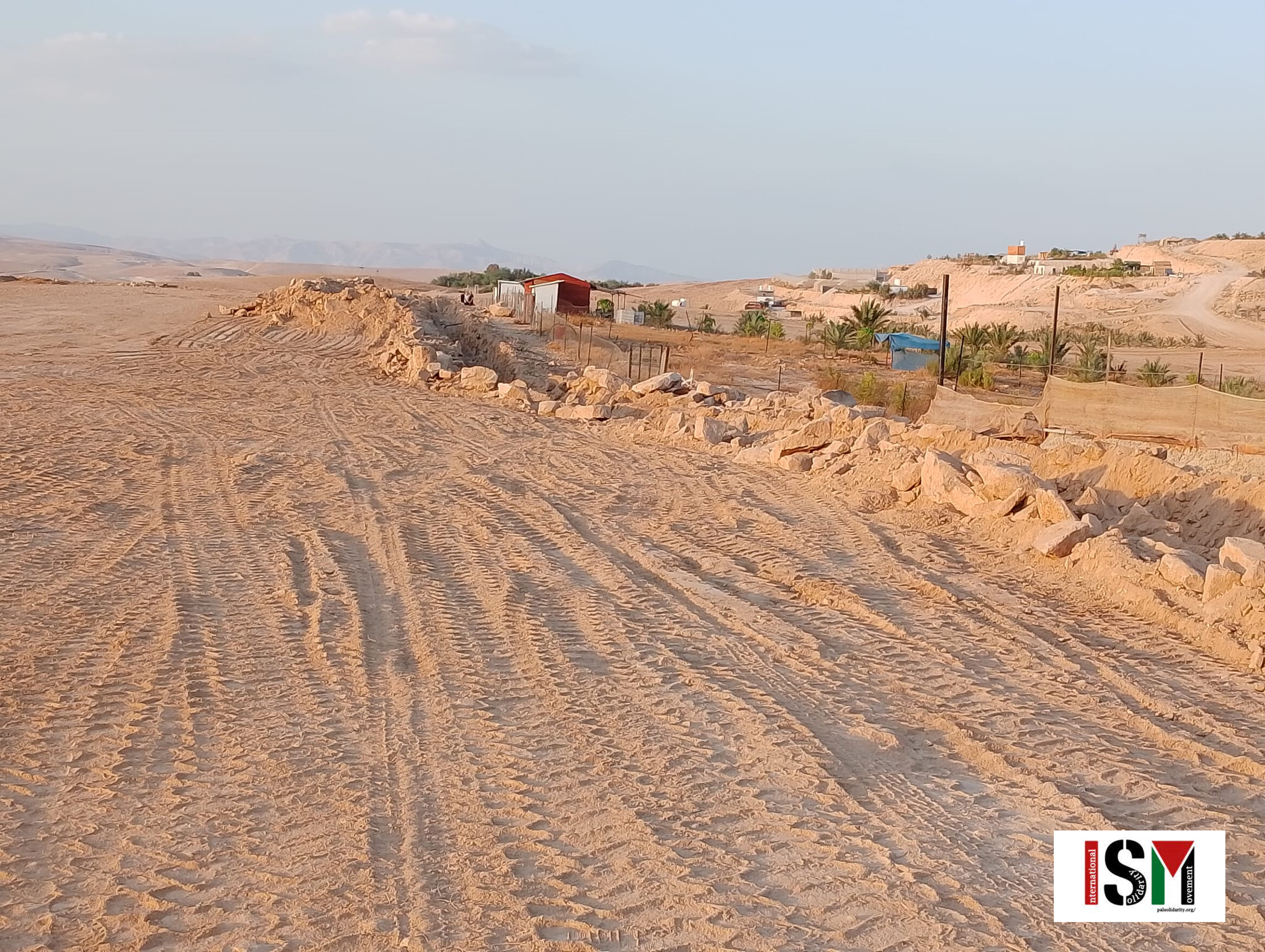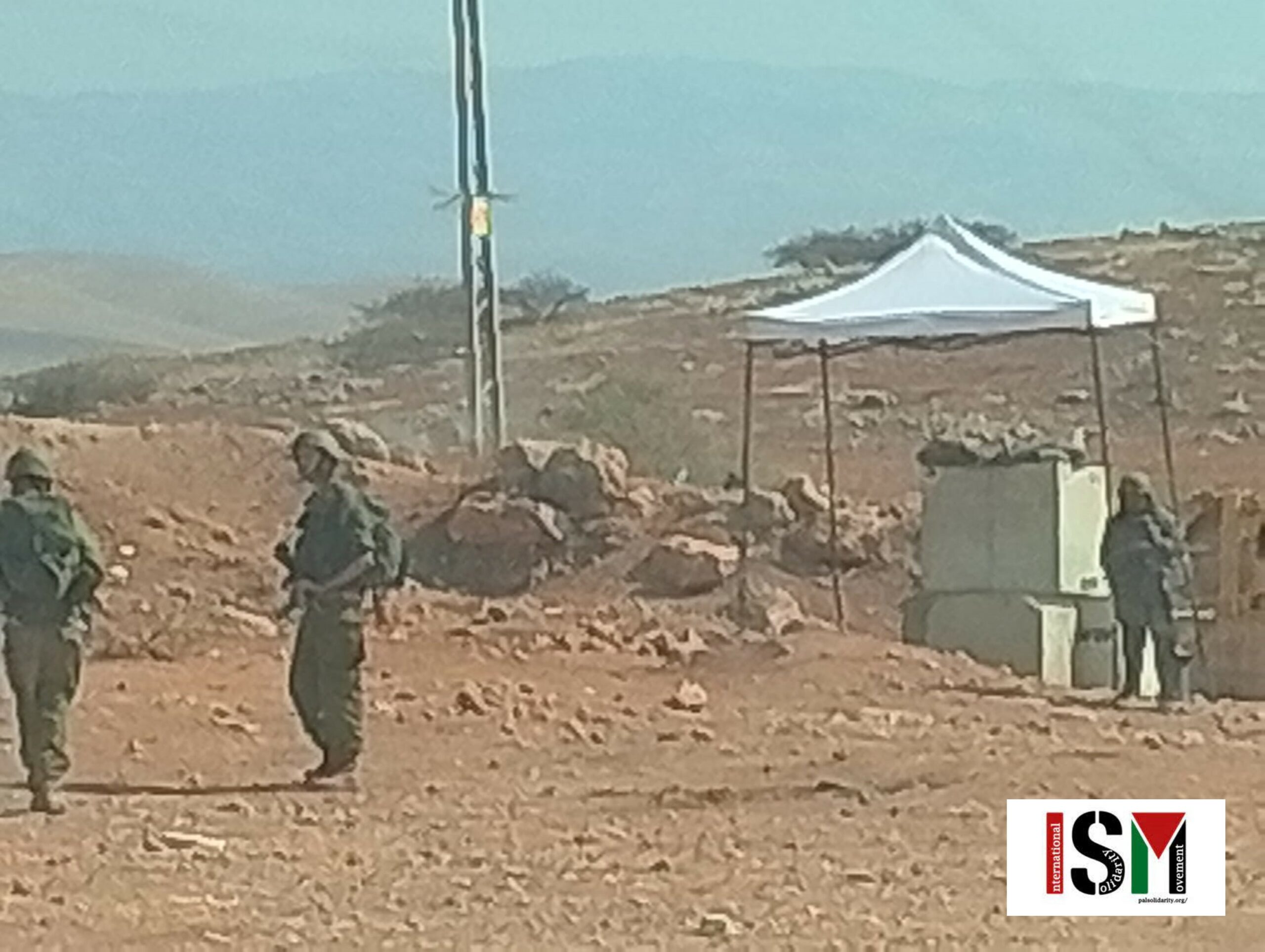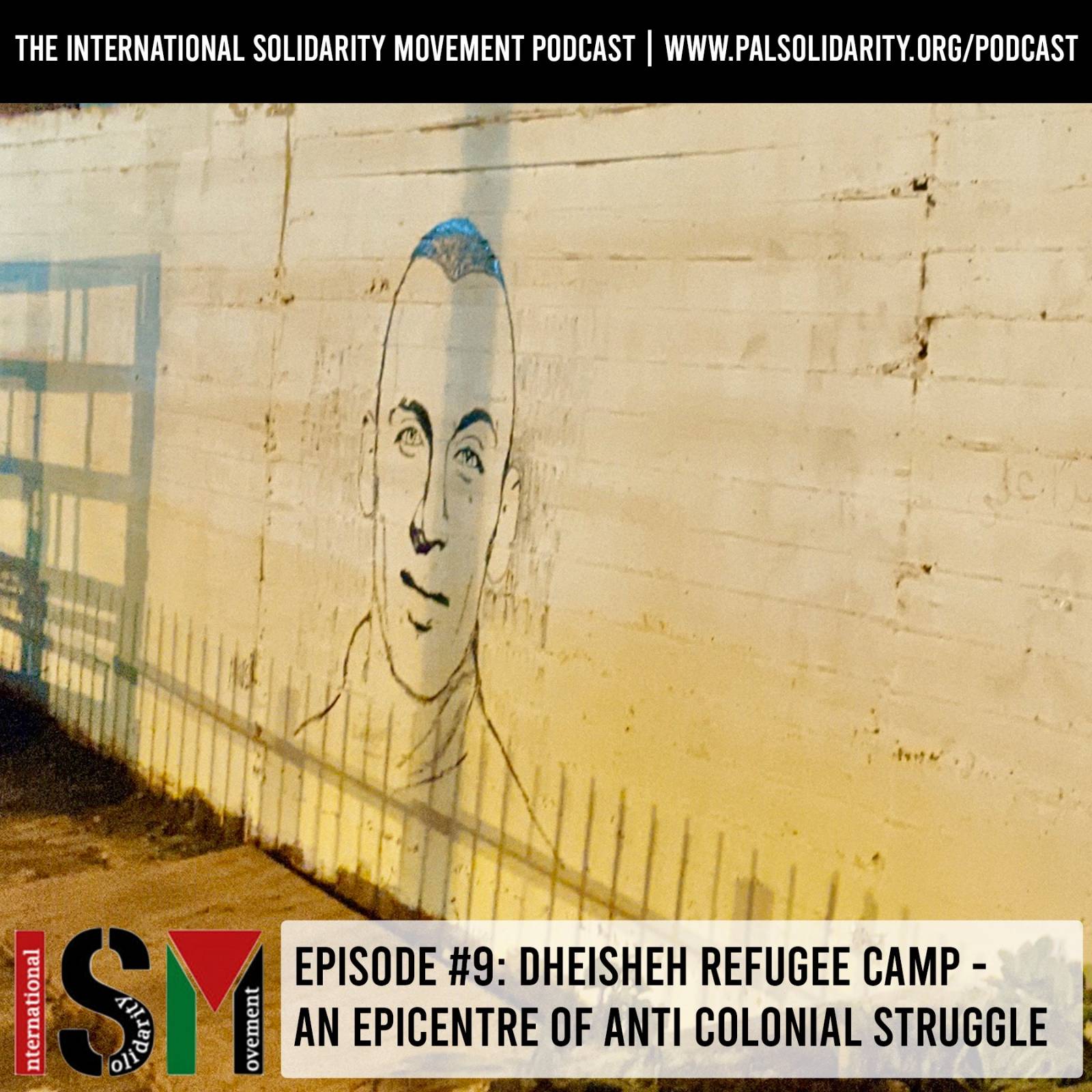Tag: Jordan Valley
-
Land injustice in the Jordan Valley and a call for action
21 October, 2023 | International Solidarity Movement | Jordan Valley The ISM visited the land of Ahmed, a resident of the Jordan Valley. Ahmed’s land falls in both Area A (under the Palestinian Authority control) and Area C (under civil and military Israeli occupation). He has a house and palm plantations on the “A side”,…
-
Colonial repression accelerates in Jordan Valley
17 October, 2023 | International Solidarity Movement | Jordan Valley Tuesday 17 Oct, an update from the Jordan Valley: Since Israel waged war on Gaza, on October 7, the situation in the Jordan Valley has deteriorated dramatically. Military checkpoints are often completely closed, and movements in and out of the Jordan Valley are severely…
-
International Solidarity Movement Podcast episode 9: Dheisheh Refugee Camp – an epicentre of anticolonial resistance
In this episode Tom and Hazel speak to Sireen Khudairy, who is a resident of Dheisheh refugee camp in Bethlehem. For many years, Dheisheh has been a centre of determined resistance against the occupation. We spoke to Sireen in December 2022. And she told us about life and resistance in Dheisheh, and also in the…



